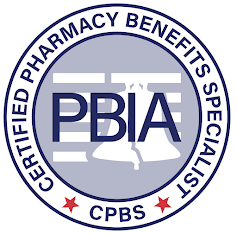Employers take tougher measures because of rising health costs and other notes from around the interweb:
- Employers take tougher measures because of rising health costs. Employers are facing the biggest annual increase in health care costs in a decade, according to Mercer. Two-thirds of the employer health insurance market is in self-insured plans, in which an employer is on the hook for some or all of workers’ health care costs rather than an insurer, according to KFF. However, they work with third parties — often well-known health insurance brands and pharmacy benefit managers — to administer their benefits. Large, self-insured employers over the past year have been able to examine insurers’ negotiated rates with providers, thanks to federal price transparency rules. Congress, meanwhile, is looking at strengthening transparency requirements. These employers are beginning to see that their own arrangements aren’t always working to their benefit, said Rob Andrews, CEO of the Health Transformation Alliance, which includes member companies like Marriott, Coca-Cola and American Express.
- Competition in Commercial PBM Markets and Vertical Integration of Health Insurers with PBMs: 2023 Update. Based on 2020 data and newly acquired 2021 data for people with a commercial drug benefit tied to a medical benefit and the PBMs used by insurers, the updated analysis presents market insight on five PBM services performed for insurers: rebate negotiation, retail network management, claim adjudication, formulary management, and benefit design. Insurers face a make-or-buy decision—they can perform these functions in-house or buy them from a PBM. The AMA Policy Research Perspectives report, “Competition in Commercial PBM Markets and Vertical Integration of Health Insurers with PBMs: 2023 Update”, found that insurers largely use a PBM for three of them—rebate negotiation, retail network management and claims adjudication—and therefore assessed market competition for those three product markets.
- Hawaii Targets PBMs With Suit Alleging Unfair Pricing System. Hawaii has joined the legal fray against the country’s top companies managing prescription drug benefits, alleging the entities are driving up high drug costs for patients they’re supposed to serve. CVS Health’s Caremark, UnitedHealth Group’s OptumRx, and Cigna Group’s Express Scripts have “engineered a business model which distorts the market to their benefit, rather than serving the best interest of their client, the payer, or the end consumer, the patient,” Hawaii Attorney General Anne E. Lopez wrote in the complaint filed Wednesday in Hawaii state court. The lawsuit claims the three pharmacy benefit managers—which together control 80% of the market—violated state laws prohibiting deceptive commercial acts and practices, and unfair methods of competition, among other actions. PBMs manage prescription drug benefits on behalf of health plans and employers, including by negotiating collecting rebates and other fees from drug manufacturers.
- ICER Updates Assessment Framework to Include New Measures of Value. The Institute for Clinical and Economic Review (ICER) has updated the framework it uses to assess the cost-effectiveness and value of prescription drugs. The organization has for 15 years provided information that has assessed the available evidence about a product’s value. Its first formal value assessment framework was published in 2015 with updates in 2017 and 2020. One of the more significant changes will be to include an assessment of a drug’s impact from a societal perspective, for example on patient and caregiver productivity, what ICER calls “non-zero” inputs. Clinical trials often do not gather this information and health economists have been conservative when there is no data, which leads to a “zero” input on measures of societal impact.
